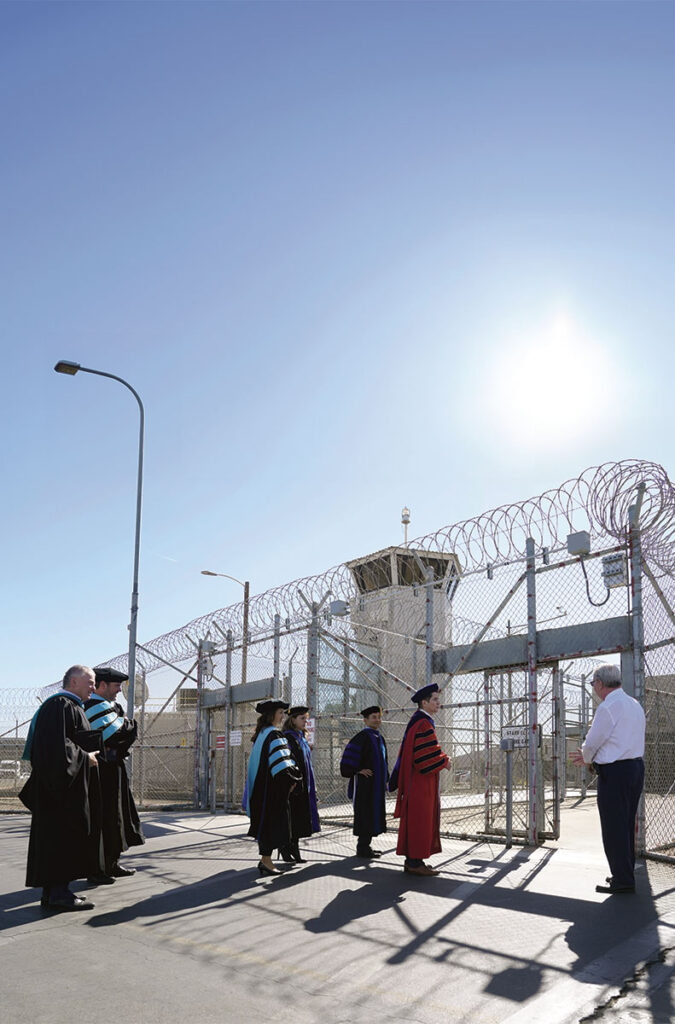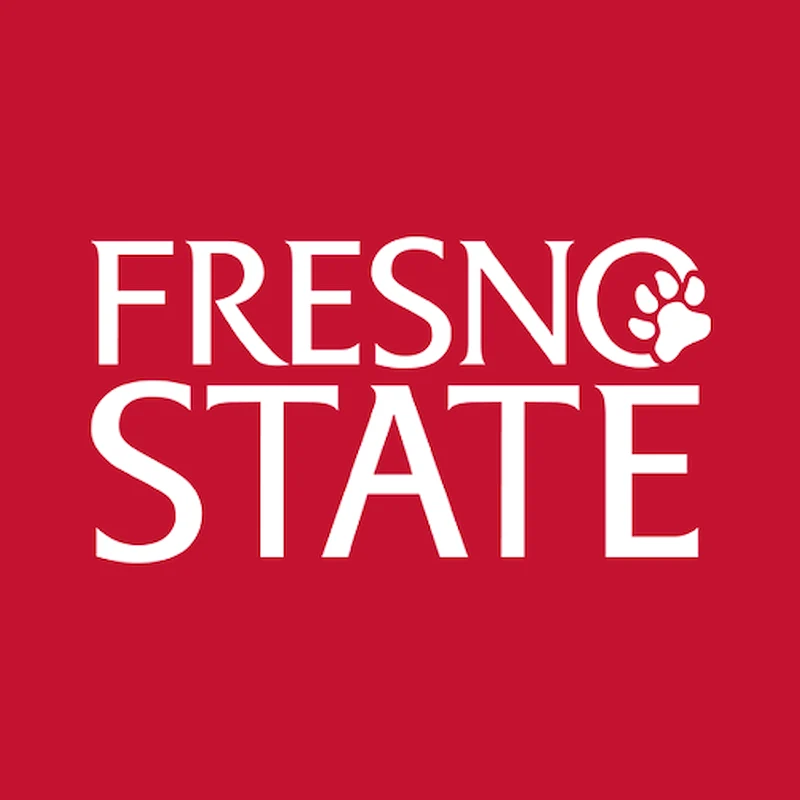Education transforms lives behind bars

By Lauren Nickerson (’10)
In many ways, it looked like any other graduation ceremony. Graduates donning caps and gowns waited with excited anticipation, shaking hands with faculty and embracing family members who had come to celebrate this milestone. Bulldog red and blue decorations, emblazoned with “Congratulations Grad,” brightened the gymnasium walls. The mood was festive, with staff and faculty in regalia, graduates and loved ones mingling as they awaited the ceremony’s start.
But this wasn’t just any graduation. What unfolded in October in rural Madera County, just southeast of Chowchilla, was nothing short of extraordinary – the first-ever commencement for incarcerated individuals earning bachelor’s degrees through Fresno State’s Degrees of Change program.
Upon approaching Valley State Prison, the beige buildings blend into the dry, rural landscape, surrounded by fields. For some, it’s hard to imagine anything extraordinary happening within those walls. Built in 1995, Valley State Prison serves as a re-entry hub for the California Department of Corrections and Rehabilitation (CDCR), providing vocational and educational training. Yet on this day, the prison hosted a graduation ceremony for 23 men who earned their bachelor’s degrees in social science while incarcerated.
Oscar Martinez, one of the two commencement speakers, captured the collective emotion. “Well, I never thought I would be here,” he says, his voice filled with awe and excitement. The graduates, seated proudly in the front row, rose to their feet, applauding and cheering each other throughout the event.
Many of the shared sentiments were similar to traditional college graduation ceremonies, however – it was clear, through the graduates’ own voices – this was not a traditional experience.
In his address, Martinez shared a poem:
“Carrying my own backpack filled with
those lies that were told to me,
Self-fulfilling prophecies,
Education meant nothing to me!
I am too stupid is all I ever learned,
Especially when I couldn’t read,
And the consistent, I’ll never succeed.”
At the heart of this transformative program is Dr. Emma Hughes, a Fresno State professor and program coordinator for the Degrees of Change initiative. Colleagues and students alike credit her vision and dedication for making this moment possible.
“Today, in my opinion, would not have happened if it was not for the hard work from one of the kindest people I have ever met in my life — Dr. Emma Hughes,” says graduate Jose Ornelas. “I am convinced that she is an angel sent to help all of my fellow classmates, as well as myself. One of the main reasons we are all here today is because of her.”
Hughes says, “Our faculty travel out to Valley State Prison once a week to teach classes under extraordinary circumstances. The faculty cannot use cell phones or connect to the internet while in the prison, and the students only have access to a closed intranet system via CDCR’s version of the Canvas learning platform. The students can’t connect to external websites like YouTube. This makes for a learning environment that is uniquely challenging and different from a traditional classroom.”
Despite the challenges, the program thrived. “Teaching at the prisons has been one of the most meaningful and transformative things I’ve ever been a part of,” says Dr. Jesse Scaccia, an assistant professor in media, communication and journalism at Fresno State.
Fresno State President Saúl Jiménez-Sandoval emphasized the importance of the program in his address. “The Degrees of Change program embodies the ethos of Fresno State,” he says. “Higher education is more than a privilege for the few — it is a journey of self discovery and reflection about one’s self, one’s responsibility to others and one’s ability to contribute, when given a second chance, to society’s betterment; it is a powerful force for all, regardless of circumstance.”
Statistics support the program’s importance. According to the Bureau of Justice Statistics, 95% of state prisoners will eventually be released, and nearly 80% will return to their communities under parole supervision. In California alone, about 35,000 individuals are released each year, highlighting the critical need for educational programs that support re-entry and reduce recidivism.
As the ceremony drew to a close, Martinez left the audience with a powerful final stanza:
“As we graduate now and see the smiles,
– Oscar Martinez
Do not forget the things we thought we
could not endure.
And when we step outside,
Look up and look around,
Everyone’s potential is sky bound.”
– Lauren Nickerson is the associate vice president for University Marketing and Communications.
























